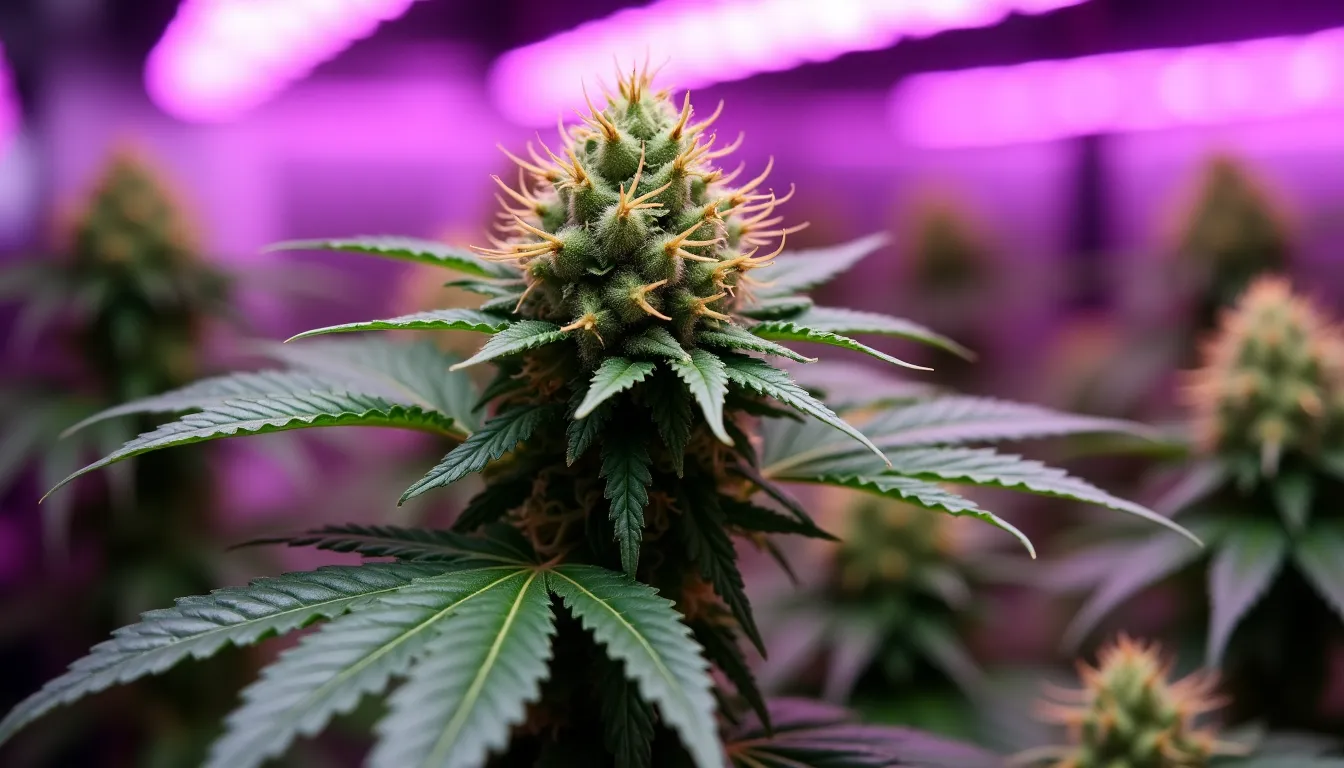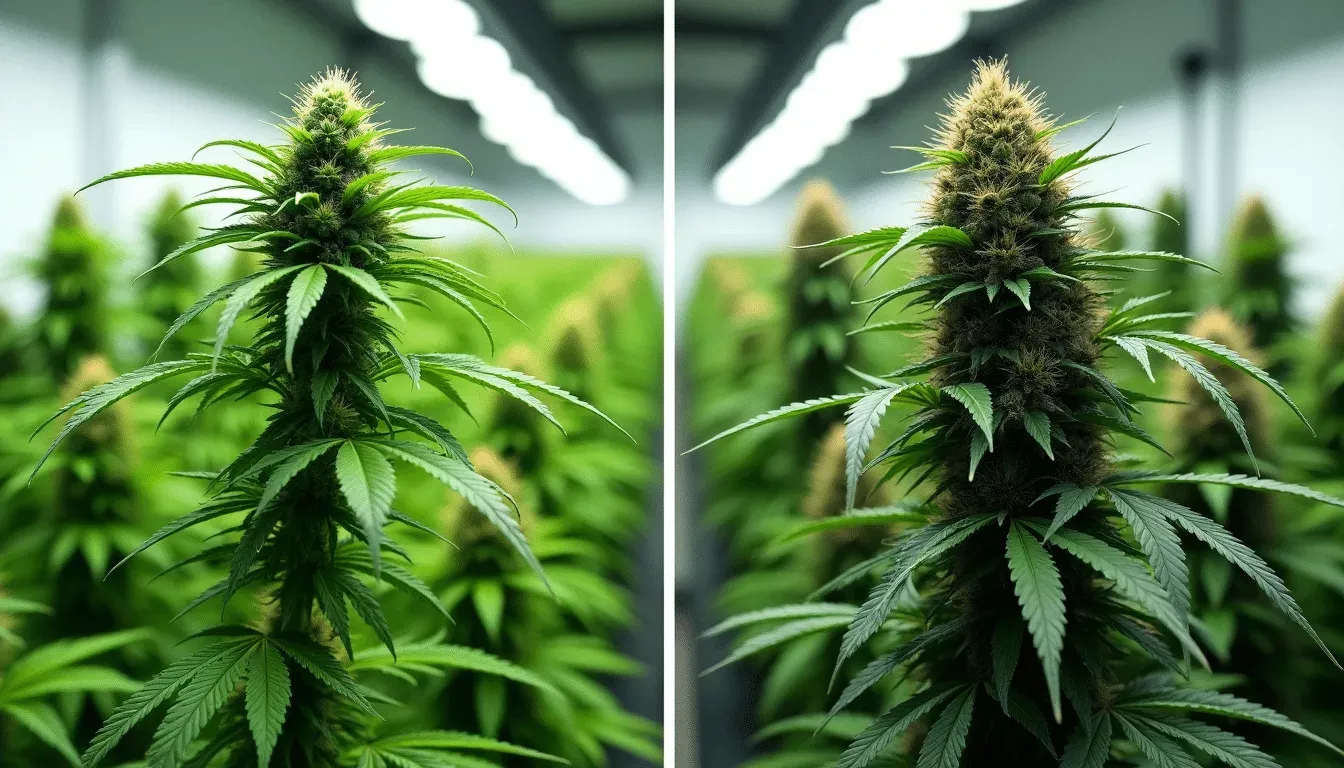Exploring THCA in cannabis: benefits
In recent years, the conversation about cannabis has expanded beyond recreational use and into the realm of health and wellness, spotlighting a variety of cannabinoids that promise numerous benefits. Among these, THCA (tetrahydrocannabinolic acid) is gaining attention for its unique properties and potential health advantages. But what exactly is THCA, and why should it matter to you? In this article, we’ll delve into the science behind this fascinating compound, exploring its benefits and practical applications, while also providing actionable insights for those interested in tapping into the potential of THCA.
Understanding THCA: What Sets It Apart?
When most people think of cannabis, they often think of THC (tetrahydrocannabinol) — the compound responsible for the plant’s psychoactive effects. THCA, however, is a non-psychoactive cannabinoid found in raw and live cannabis. As cannabis dries or is heated, THCA converts to THC in a process known as decarboxylation, which changes its structure and effects. This transformation is why fresh cannabis doesn’t induce the “high” associated with dried, smoked, or vaped variants.
Research into THCA is still in its infancy, yet early studies suggest it carries a range of therapeutic properties without intoxicating effects. This makes THCA particularly intriguing for individuals seeking medicinal benefits without the altered state typically linked to THC [source]. From reducing inflammation to potentially slowing neurodegeneration, the therapeutic implications of THCA are wide-ranging and continue to evolve as more studies emerge.
The Benefits of THCA : Why It’s Worth Considering
THCA offers several benefits that make it a valuable component of the cannabis plant’s profile:
Anti-Inflammatory Properties
Inflammation is the body’s natural response to injury or infection but can lead to chronic health issues if prolonged. Studies indicate that THCA may act as a potent anti-inflammatory agent, which could be beneficial for conditions such as arthritis and lupus. By potentially reducing swelling and pain, THCA might offer relief for those struggling with inflammatory diseases.
Neuroprotective Effects
Some promising research suggests that THCA might possess neuroprotective qualities. This means it could play a role in supporting brain health and possibly slowing the cognitive decline seen in diseases like Alzheimer’s and Parkinson’s. While research is ongoing, the potential for THCA to contribute to cognitive health could be significant in the future.
Nausea and Appetite Stimulation
For patients undergoing treatments such as chemotherapy that often induce nausea and appetite loss, THCA might provide some comfort. Preliminary evidence points to its efficacy in reducing nausea, which is crucial for patients needing adequate nutrition during recovery.
Analgesic Potential
While THC is more widely recognized for pain relief, THCA also demonstrates potential analgesic properties. Individuals who suffer from chronic pain might find relief using THCA without the psychoactive effects tied to THC.
How to Integrate THCA Into Your Routine
Now that we’ve explored the benefits of THCA, you might be wondering how you can incorporate it into your wellness routine. Here are a few practical tips:
Fresh and Raw Consumption
Juicing raw cannabis leaves or adding them to smoothies is a direct method to consume THCA. This preserves the compound’s natural form and offers a new dimension to your dietary options. Remember, if you seek THCA specifically, avoid heating the plant material, as this will convert THCA into THC.
Topicals and Tinctures
For localized benefits, consider using THCA-infused topicals. Additionally, THCA tinctures provide a versatile option for dosing. They can be taken under the tongue or even added to salads and other foods as a dressing.
Do Your Research
Like any wellness decision, it’s essential to do your due diligence. Speak with healthcare professionals, especially those familiar with cannabis, to tailor a regimen that suits your health needs. Keep abreast of the latest research developments for new insights.
Conclusion
As exploration into cannabis and its myriad components continues, THCA stands out as a promising avenue for therapeutic research and application. Its variety of potential benefits — from reducing inflammation and exhibiting neuroprotective properties, to alleviating nausea and serving as a mild analgesic — positions THCA as a noteworthy compound for those seeking holistic health alternatives.
As interest in cannabis as a wellness tool grows, embracing new knowledge and keeping an open mind will serve enthusiasts and newcomers alike. We encourage you to explore the potential that THCA holds, engage with the community, and share your experiences. For further learning, consider visiting reputable resources such as Project CBD, where comprehensive studies and articles can offer deeper insights into cannabinoids like THCA.
FAQ: Exploring THCA in Cannabis Benefits
What is THCA in cannabis?
THCA, or tetrahydrocannabinolic acid, is a non-psychoactive cannabinoid found in raw and live cannabis plants. It becomes THC, the compound responsible for the ‘high,’ when exposed to heat.
How does THCA differ from THC?
THCA is the acidic precursor to THC and doesn’t produce any psychoactive effects. THC is derived by decarboxylating (heating) THCA, which then activates its psychoactive properties.
What are the potential health benefits of THCA?
THCA is believed to have anti-inflammatory, neuroprotective, and antiemetic properties. It’s being studied for its potential to aid in conditions like arthritis, neurodegenerative diseases, and nausea.
Can THCA help with pain relief?
Research suggests that THCA may have anti-inflammatory properties, which can help in relieving pain associated with inflammation, although it’s not psychoactive like THC.
How can THCA be consumed?
THCA can be consumed by juicing raw cannabis, using cold extraction methods, or taking THCA tinctures or capsules. It is important that the method doesn’t involve heating to preserve its form.
Related: how does thca work
Share this content:



